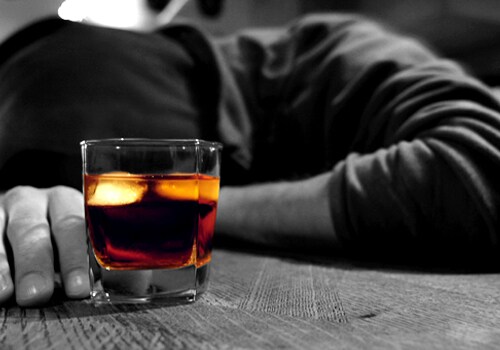-

What is alcoholism?
Alcohol abuse is a condition in which a person drinks to the point that this habit interferes with his or her life. Alcohol dependence describes a more severe condition marked by physical symptoms and loss of control to the point, that maintaining the addiction to alcohol becomes the main focus of a person’s life. The physical dependence on alcohol is continued despite the knowledge of its harmful consequences.
Physical dependence on alcohol is continued despite the harmful consequences. There is an inability to limit the drinking despite continued efforts. The person drinks more and more alcohol to achieve a particular state of mind (colloq. 'high’). He may also drink more to lessen depressive feelings, which are worse when the person is not under the influence of alcohol. Signs of physical dependence include bodily changes, such as shakes, ‘delirium tremens’ (withdrawal symptoms), or sweats on cessation of drinking.
Alcoholism is a common illness. It is especially serious in older people, since other medical problems are made worse by alcohol. -

How does it occur?
Many factors may lead to alcohol dependence. These can include genetic factors, family environment, ongoing stress and self-medication for emotional problems such as depression or anxiety and the nature of alcohol. Grief, loneliness, depression, or boredom could lead to drinking late in life.
-

What are the symptoms?
Alcohol dependence can manifest itself in different patterns. Drinking may range from daily excessive drinking to binge drinking. Tolerance refers to the fact that many alcoholics drink ever-larger amounts of alcohol before feeling or getting drunk. By the time one has progressed from alcohol abuse to alcohol dependence, it is necessary to consume the same to avoid withdrawal symptoms.
People who are dependent on alcohol may try to hide evidence of drinking and promise to give up the habit. They may drink stronger alcoholic beverages and have long periods of drunkenness. Alcohol dependents may have frequent episodes of blackouts – times when they do not remember what happened during the drinking episode.
Additionally, there may be problems at work (like disinterest, missing work). Interest in food is decreased. There may be mood changes (angry, irritable, violent) and personality changes (jealous, distrustful). People with alcohol dependence may scarcely care for personal or social rules. They repeatedly drive while drunk, and may hurt themselves or others. They are careless about their appearance, confused and have memory problems, losing the ability to think quickly or concentrate, and often have money problems.
Typical physical symptoms include nausea or tremors in the morning, stomach pain or ulcers, cramps or diarrhoea. They can have numbness, tingling or weakness in the hands and legs, red eyes, face, or palms. The walk may be unsteady and the person may fall frequently. Alcohol is toxic to the brain, the heart, liver, kidneys, stomach and intestines, muscles, eyes and the sexual organs. This toxicity leads to many medical problems. -

How is it diagnosed?
The doctor will take a careful medical history of the symptoms including the pattern of use of alcohol. The doctor will ask about the history of using other drugs as well. Other important questions relate to the ability to function socially, work history, family history, prior and current emotional or mental problems and thoughts of suicide.
The doctor will examine to look for medical problems caused by alcohol use. Lab tests of urine and blood may be done. The most frequent and severe effects of alcoholism are problems with emotions, relationships, accidents and work, and medical problems such as cirrhosis of liver. -

How is it treated?
The aim of treatment is to stop the person from drinking alcohol completely, referred to as abstinence. People who are mild alcohol abusers can stop or reduce alcohol drinking on their own. But people who have gone as far as becoming alcohol dependent must be assisted to become, and more importantly, remain abstinent. Relapse to drinking is common in the early period of recovery. The patient must be helped to limit these slips and get back to abstinence as soon as possible. Patients who are alcohol dependent may also go through a unique phase of denial – where they feel that they will be able to stop drinking whenever they want to. This prevents them from seeking professional help to sort out their problem.
Psychotherapy and social rehabilitation help in recovery. Family members should be included in the treatment program. After immediate withdrawal from alcohol (detoxification), long-term rehabilitative treatment is needed. Initially hospital based treatment followed by outpatient treatment at de-addiction clinics is required. A support program for rehabilitation plays a very important role in treatment.
Support groups like “The Alcoholics Anonymous” in India and abroad, form a key part of rehabilitation of patients with alcohol dependence. One of the most important aspects of alcohol counselling and treatment is to learn the behaviour patterns that lead to drinking. It is important to recognize these patterns and change them. Health related problems can often be controlled or prevented by stopping drinking. However, severe damage to the liver or pancreas can be long-lasting and ultimately fatal.


















